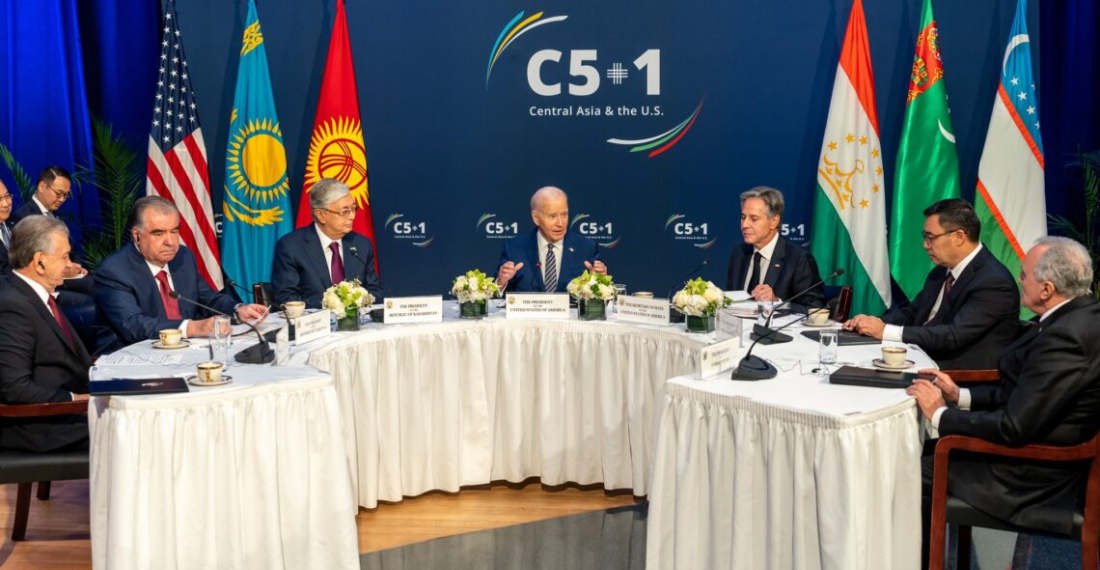US President, Joe Biden, on Tuesday (19 September) met in New York on the margins of the UN General Assembly, the leaders of the five Central Asian Republics. Attending the meeting were the presidents of Kazakhstan, the Kyrgyz Republic, Tajikistan, Turkmenistan, and Uzbekistan. This was the inaugural C5+1 presidential summit.
A readout from the White House said that the leaders discussed a range of issues, including security, trade and investment, regional connectivity, the need to respect the sovereignty and territorial integrity of all nations, and ongoing reforms to improve governance and the rule of law.
"President Biden welcomed his counterparts’ views on how our nations can work together to further strengthen the Central Asian nations’ sovereignty, resilience, and prosperity while also advancing human rights through our C5+1 partnership. President Biden thanked his counterparts for their partnership on regional security challenges and committed to continued collaboration on border security, counterterrorism, and law enforcement issues.
The United States discussed the value of creating a more favourable business environment for U.S. trade and private sector investment through the establishment of a private sector business platform that will complement the C5+1 diplomatic platform and noted that USAID will convene a C5+1 Regional Connectivity Ministerial in Central Asia in October to discuss concrete actions that will drive inclusive, sustainable economic development.
Because President Biden recognizes that our countries must cooperate to have resilient, secure supply chains that can support the future energy landscape, the United States proposed launching a C5+1 Critical Minerals Dialogue to develop Central Asia’s vast mineral wealth and advance critical minerals security. These efforts are part of continued U.S. support to drive investment in and development of the Trans-Caspian Trade Route (the so-called “Middle Corridor”) through the Partnership for Global Infrastructure and Investment that will help facilitate regional economic integration and resilience.
Finally, President Biden advocated for continued support of civil society and women’s economic empowerment activities and encouraged a new C5+1 focus on mainstreaming disability rights across all sectors."







